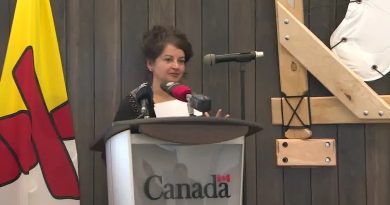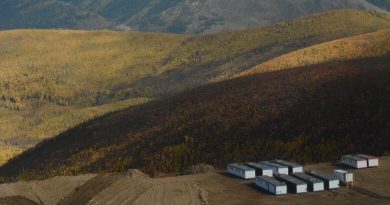Alaska researchers test ancient bison horns in northwestern Canada for climate change study
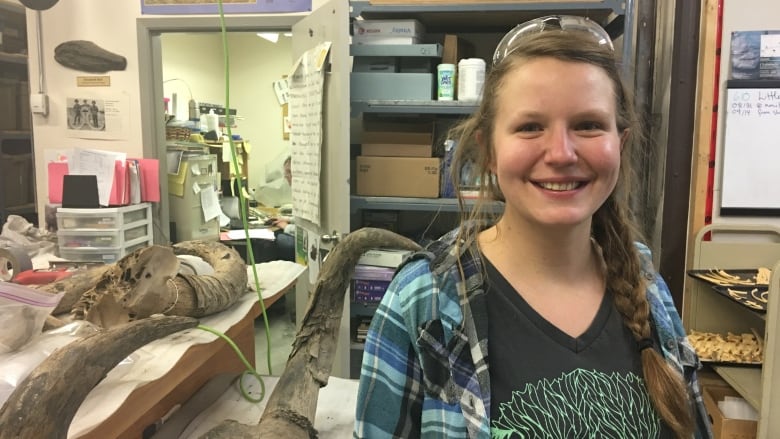
Researchers from Alaska are testing hundreds of ancient bison horns in Whitehorse, Yukon.
They are trying to find out how ice-age bison herds adapted to climate change.
“I think this is really important moving forward as we are trying to manage herds of animals in a period of climate change,” said Juliette Funck, a PhD candidate in paleoecology at the University of Alaska Fairbanks.
Funck is joined by Matthew Wooller, the director of the Alaska Stable Isotope Facility, and Ben Barst, a doctoral fellow at the University of Alaska Fairbanks.
They are using power tools to remove samples of the horns for testing. The horns have visible layers that represent each year of the bison’s life, just like rings on a tree trunk.
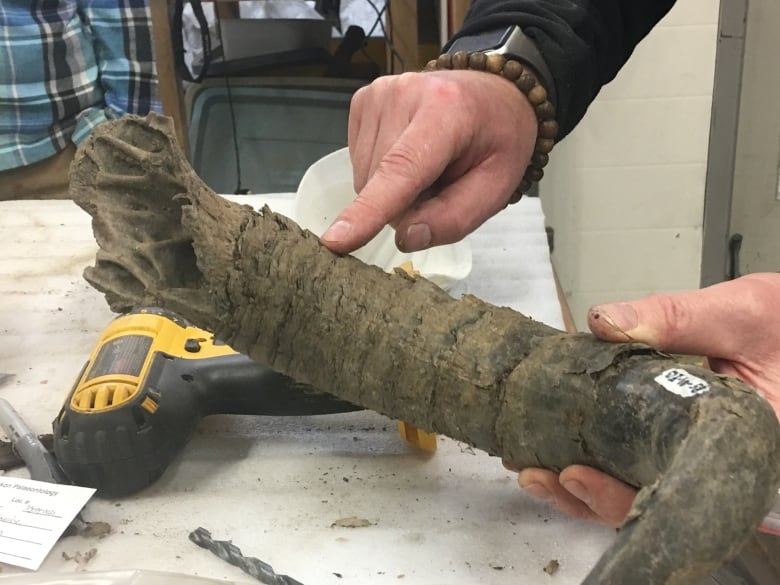
“We have a wonderful experiment on how climate change affects animals and their diet and their life history over a long, long period of time,” said Funck.
With these samples Funck will be able to break down the lifespan of an individual bison to look at how it lived month by month. She will be looking to see what it ate, if there were periods it was malnourished and when it died.
Hundreds of horns
Funck is doing this for hundreds of samples. There are 500 bison horns in the collection at the Yukon government paleontology archive that range in age from 12,000 to more than 50,000 years old.
Graphing the results of these bison on a timescale will give Funck and her a team a clearer picture of how these ancient bison herds lived.
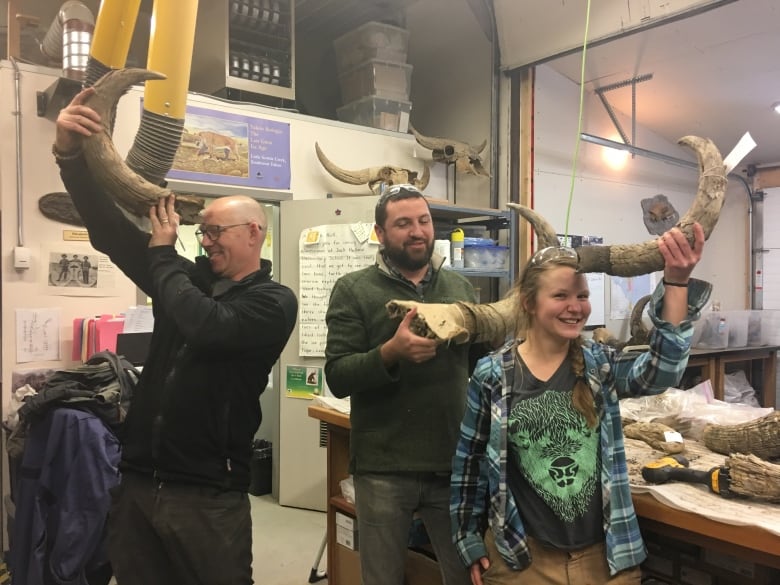
“Seeing what adaptations were necessary in the past to overcome climate change and which were detrimental and lead to mass extinction, which we are trying to prevent in the present,” she said.
This information will be used to compare to living wood bison herds today. The research the team collects could help inform how to keep wood bison herds healthy.
Funck said she and her team came to study these bison horns in Yukon because of the “exceptional” collection.
For decades, Yukon government paleontologist Grant Zazula and his team have been collecting these bison horns, most of which have been dug up in placer mining sites by Dawson, and have been sitting on shelves.
“There are thousands of bones here and we can’t do all these studies ourselves,” he said.
“By pooling our efforts together we have an opportunity to study these animals in more detail… to come up with more informative stories.”
Related stories from around the North:
Canada: Climate change is driving micro-algae blooms into High Arctic and may affect food chains, says study, Eye on the Arctic
Finland: How did Finland’s 5 white-tailed deer become 100,000 in only 80 years?, Yle News
Iceland: Scientists puzzled by right whale’s appearance off Iceland, CBC News
Norway: Barents Sea ecosystem undergoing dramatic change, study shows, The Independent Barents Observer
Russia: Russian and American scientists team up to study Arctic Russia’s weakening sea ice, The Independent Barents Observer
Sweden: Warm temperatures lasting into autumn across Sweden, Radio Sweden
United States: New study predicts ‘radical re-shaping’ of Arctic landscape by 2100, CBC News

